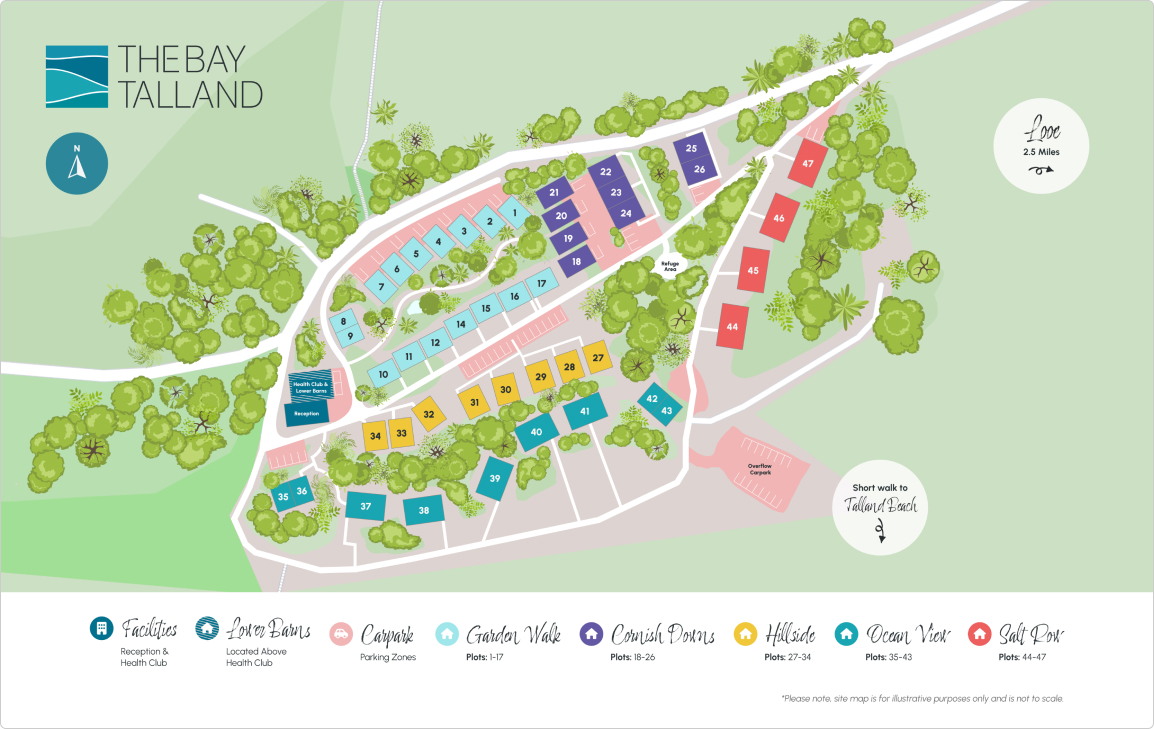If you’re a history buff and are planning on visiting us soon, this blog is for you. We’ll cover the rich history of Looe, covering the development of the town itself, its smuggling history, and many more interesting historical facts about this wonderful coastal town. And if you are going to stay in one of our luxury cottages why not pay a visit to some of the historic landmarks we cover in this blog?
The Oldest Building In Looe – “The Old Guildhall”
Evidence found by archaeologists suggests that Looe was inhabited as early as 1000 BC, during the Neolithic period. But the current oldest building in Looe was built back in 1450, called The Old Guildhall. This is currently a museum which makes for a great day trip! It has plenty of interesting items from Looe’s past on display, including family history pieces, a gallery and a wide variety of heirlooms. The museum is £3 for adults and free for children.
The Development Of Looe – From A Large Port To A Tourism Hotspot
The town of Looe developed very quickly, as being one of Cornwall’s largest ports, it saw a swift rise in traders all over the world visiting to sell and collect their goods. It was also well-known for its professional boat-building industries. These industries even provided warships for the siege of Calais in 1347.
Disaster struck however in the 1800s, as the war against Napoleon made a large dent in Looe’s trade. A large portion of their income was also halted, as the blockage of 1808 stopped their fishing fleet from reaching their pilchard fishing area.
In the 19th century, Looe experienced a massive tourism boom as more visitors started flocking to its sandy beaches and beautiful scenery. This trend continued into the 20th century and still to this day is a significant part of the town’s economy.
Politics Of Looe – The Town’s Historical Borough Status
Looe was granted borough status during the medieval period, which was a significant part of its political development. Borough status meant that Looe had the authority to govern itself, to some extent.
Self-Governance – As a borough, Looe had its own form of local government. This included the appointment of a mayor who would oversee the town affairs and represent it officially. This mayor was chosen from among the most prominent residents.
Legal And Administrative Autonomy – Being a borough gave Looe a degree of legal and administrative autonomy, meaning that it could enact its own laws and regulations. This involved handling local disputes accordingly and managing their resources.
Trading Rights – The borough status came with trading rights and privileges, and with Looe having a great harbour with access to the sea, it benefitted from these privileges by controlling and regulating trade within its jurisdiction.
Looe enjoyed all these privileges that came with borough status for a while, however, in the mid-19th century during a period of administrative reforms in the UK, its borough status was lost. Many smaller boroughs were merged or saw changes in their political status during this time.
We hope you enjoyed learning all about Looe’s rich history, and if you are planning on staying with us our cottages are close to plenty of historical landmarks. If you would like to find out more about your visit, please don’t hesitate to contact us today.


